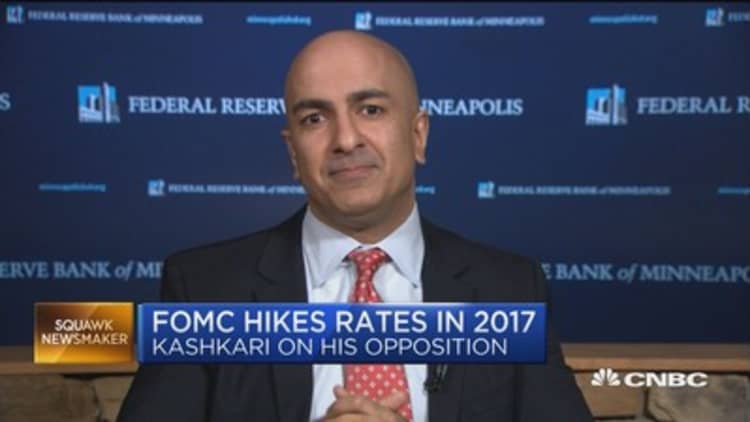
It's not the Federal Reserve's job to protect investors from losses in the stock market, Minneapolis Fed President Neel Kashkari said Tuesday.
During an appearance on CNBC's "Squawk Box," Kashkari said the central bank keeps a tab on asset prices and signs of financial instability, but he added it's unwise to use monetary policy to try to constrain the stock market.
"I think we need to work very hard to protect against an '08-type scenario, but if markets correct, it's not the Fed's job to protect investors from losses," said Kashkari, a voting member of the policymaking Federal Open Market Committee.
"If we raise interest rates, not because of the job market, not because of inflation, but because we simply raise interest rates to try to constrain the stock market, that could be very costly," he added.
Kashkari, who unsuccessfully ran as a Republican for governor of California in 2014, served as the administrator of TARP, the Troubled Asset Relief Program, at the Treasury Department during the financial crisis.
After leaving Washington, he joined Pimco as a managing director and head of global equities. Before his time at Treasury, he was a vice president at Goldman Sachs.
Kashkari was a dissenter last week in the Federal Reserve's decision to raise its benchmark interest rate a quarter point to a target range of 1.25 percent to 1.5 percent. It was the third rate hike this year and the fifth since 2006.
He told CNBC he keeps voting against interest rate hikes because of low inflation and troubling bond market signals.


